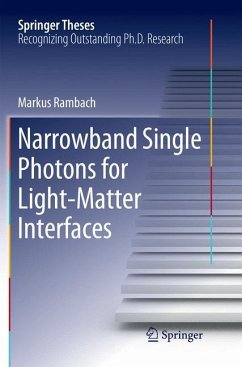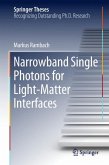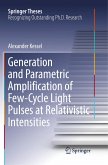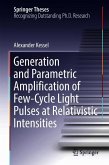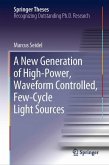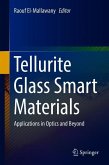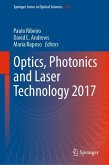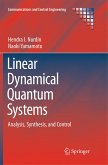This book provides a step-by-step guide on how to construct a narrowband single photon source for the integration with atom-based memory systems. It combines the necessary theoretical background with crucial experimental methods and characterisations to form a complete handbook for readers at all academic levels.
The future implementation of large quantum networks will require the hybridisation of photonic qubits for communication with quantum memories in the context of information storage. Such an interface requires carefully tailored single photons to ensure compatibility with the chosen memory.
The source itself is remarkable for a number of reasons, including being the spectrally narrowest and brightest source of its kind; in addition, it offers a novel technique for frequency stabilisation in an optical cavity, together with exceptional portability.
Starting with a thorough analysis of the current literature, this book derives the essentialparameters needed to design the source, describes its individual components in detail, and closes with the characterisation of a single photon source.
The future implementation of large quantum networks will require the hybridisation of photonic qubits for communication with quantum memories in the context of information storage. Such an interface requires carefully tailored single photons to ensure compatibility with the chosen memory.
The source itself is remarkable for a number of reasons, including being the spectrally narrowest and brightest source of its kind; in addition, it offers a novel technique for frequency stabilisation in an optical cavity, together with exceptional portability.
Starting with a thorough analysis of the current literature, this book derives the essentialparameters needed to design the source, describes its individual components in detail, and closes with the characterisation of a single photon source.

